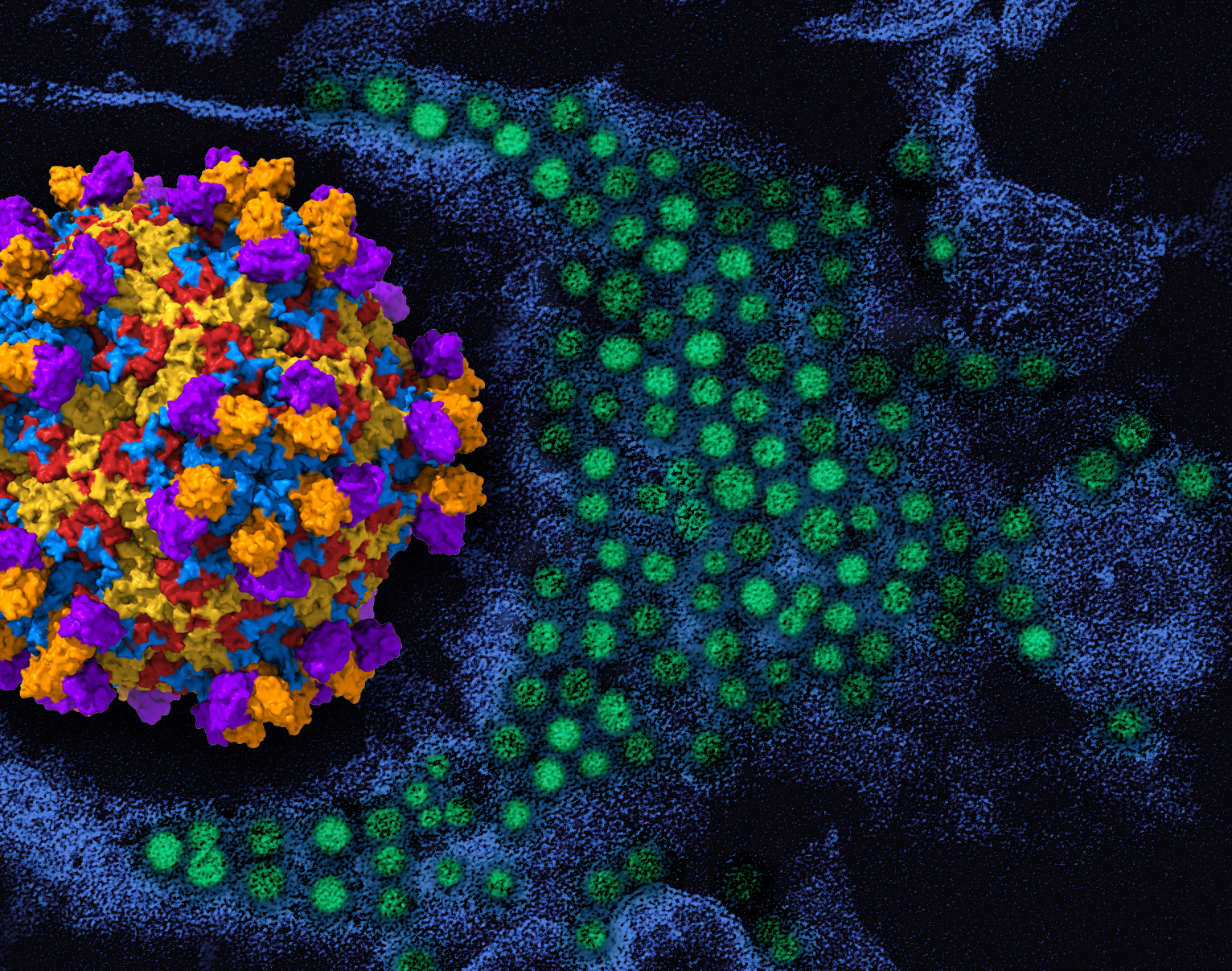On the left is a 3D rendering of enterovirus D68 (viral proteins red, yellow, blue) with human monoclonal antibody EV68-228 (orange/purple). To the right in the background is a colorized transmission electron micrograph of enterovirus D68 virus particles (green). Credit: 3D rendering by NIAID; micrograph, repositioned and recolored by NIAID, courtesy of CDC.
A monoclonal antibody was developed from the blood of patients who were recovering.
The NCT06444048 will enroll 36 healthy volunteers ages 18 to 49. Six will receive a placebo (control group) and 30—in groups of 10—will receive either a 3, 10, or 30 mg/kg dose of EV68-228-N intravenously. As part of the safety evaluation, scientists will monitor the first two study participants in each group receiving the experimental treatment for at least 72 hours before others receive the infusion. Researchers will then monitor and evaluate study participants during nine subsequent in-person examinations over the next 120 days.
According to the CDC, EV-D68 was first identified in California in 1962 and is one of more than 100 non-polio enteroviruses. EV-D68 typically causes respiratory illnesses that are mild. Non-polio enteroviruses are very common. Most infections are asymptomatic or cause mostly mild symptoms, such as runny nose, sneezing, cough, rash, mouth sores, body aches, and muscle aches. Severe symptoms may include wheezing and difficulty breathing.
Beginning in 1987, physicians and public health officials began reporting sporadic EV-D68 cases to CDC. However, between August and December 2014, EV-D68 caused an outbreak of respiratory illness in the U.S. and 120 cases of AFM in 34 states. This raised awareness of EV-D68-associated illness and, beginning in 2014, CDC surveillance for EV-D68 expanded. EV-D68 and cases of AFM have been subsequently detected in the U.S. every year, mostly in late summer and early fall, with pronounced spikes in 2016 and 2018.











/https://tf-cmsv2-smithsonianmag-media.s3.amazonaws.com/filer_public/34/31/3431771d-41e2-4f97-aed2-c5f1df5295da/gettyimages-1441066266_web.jpg)








Discussion about this post